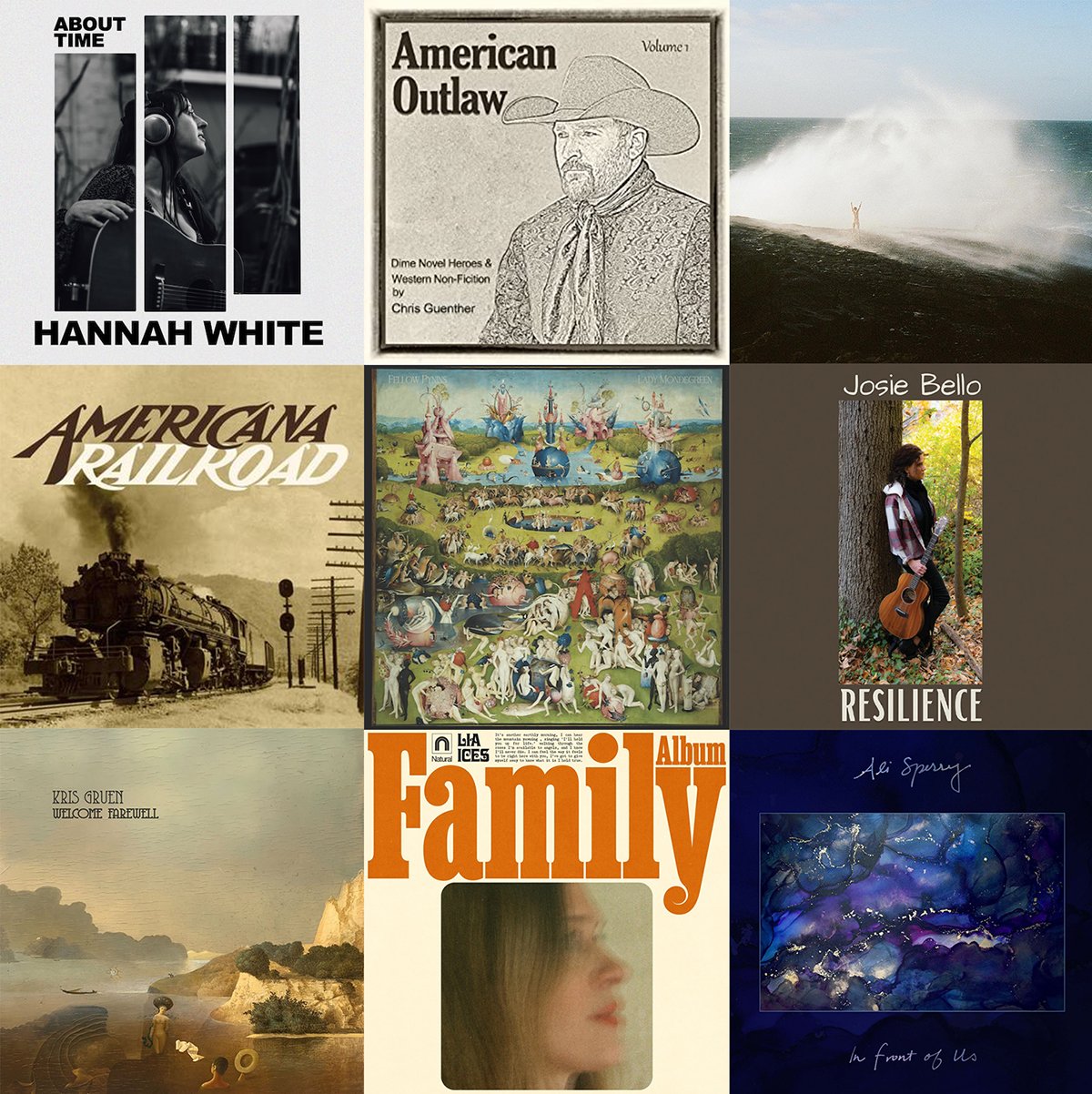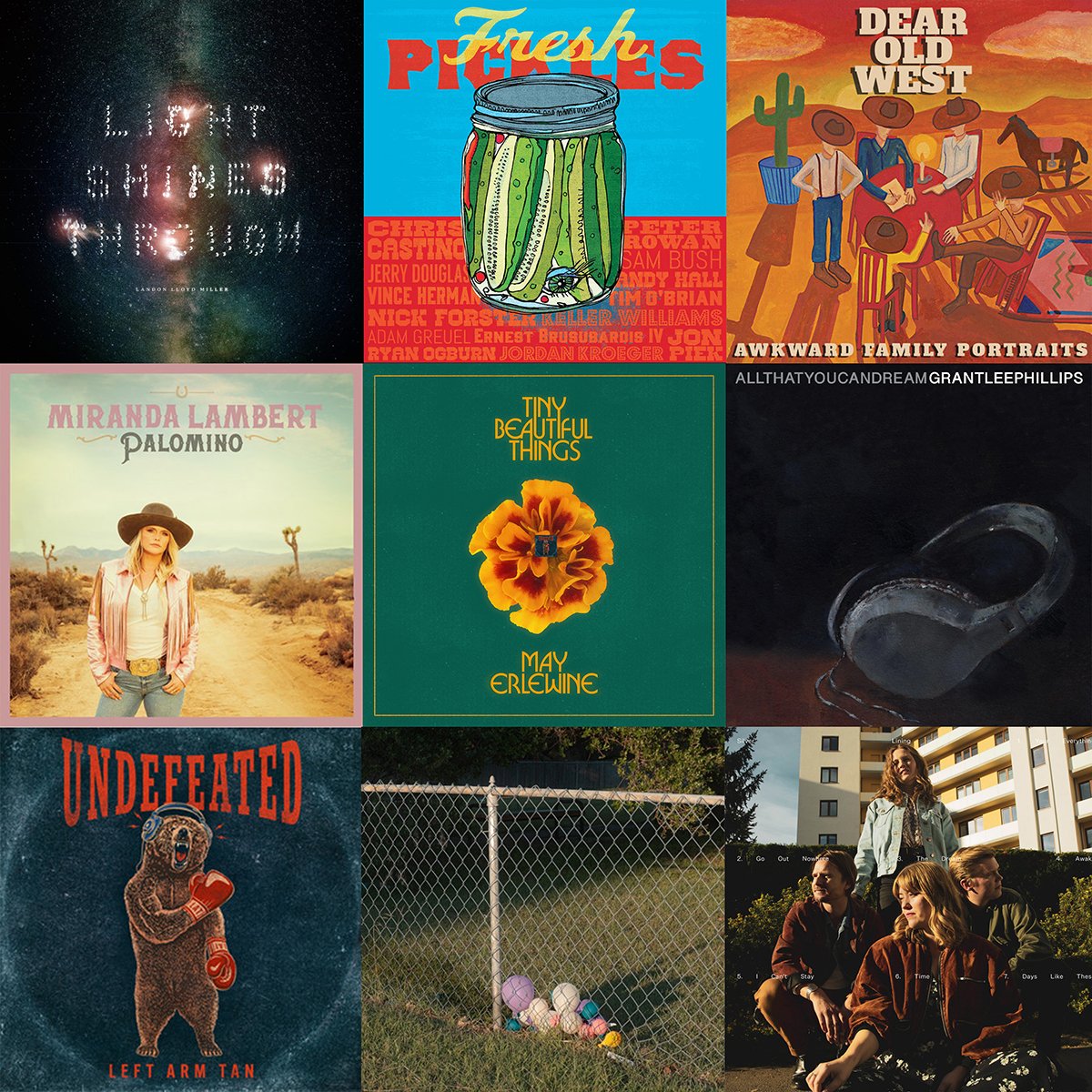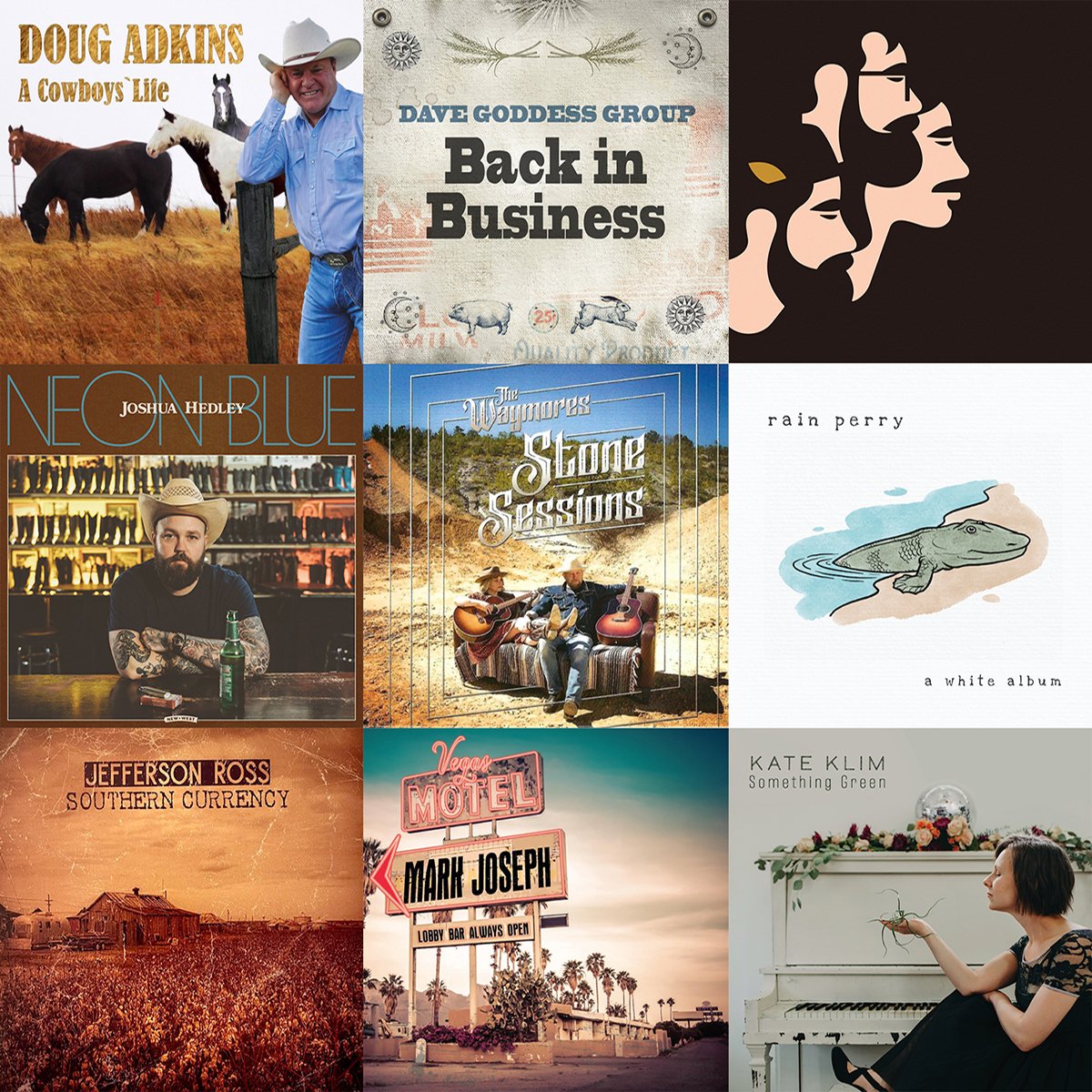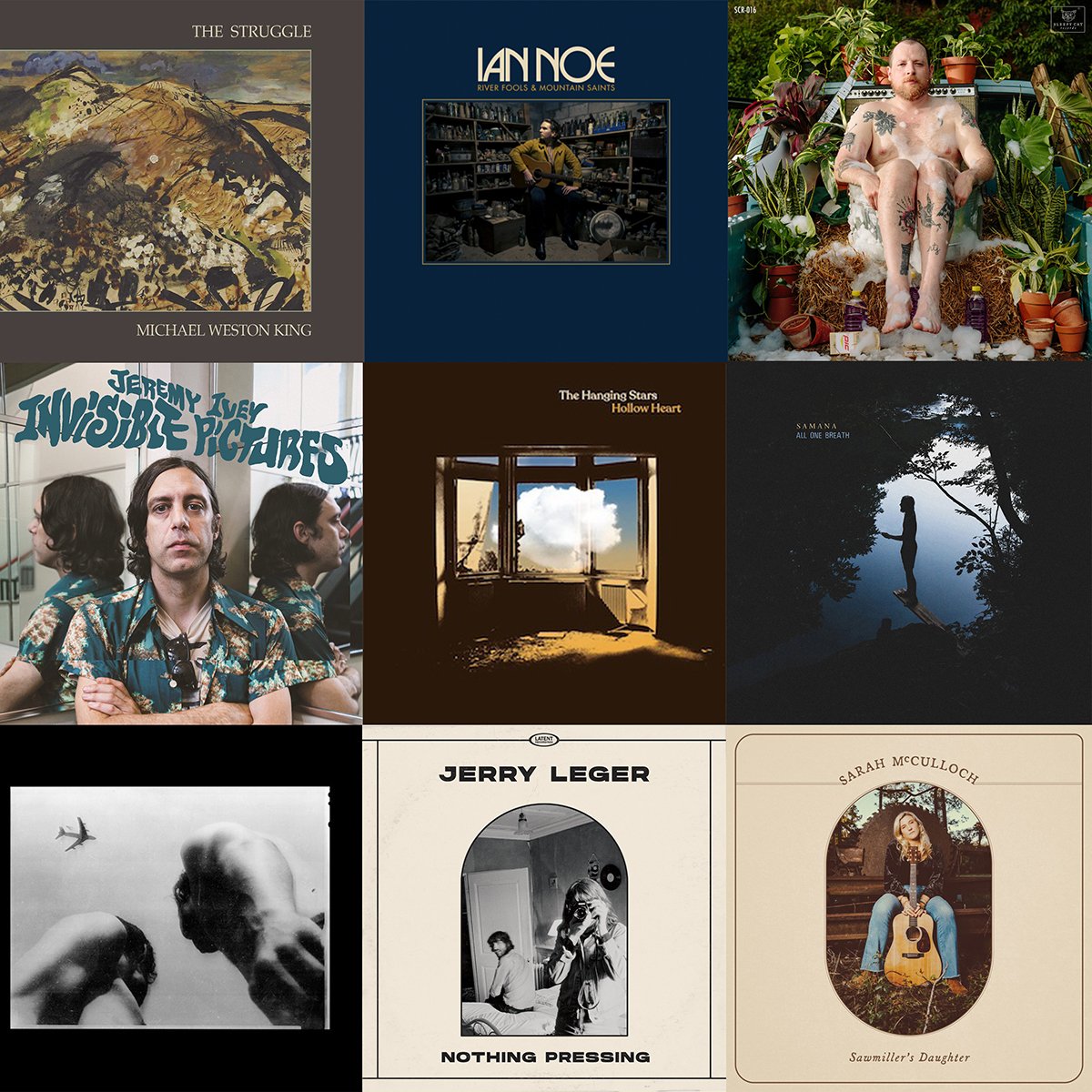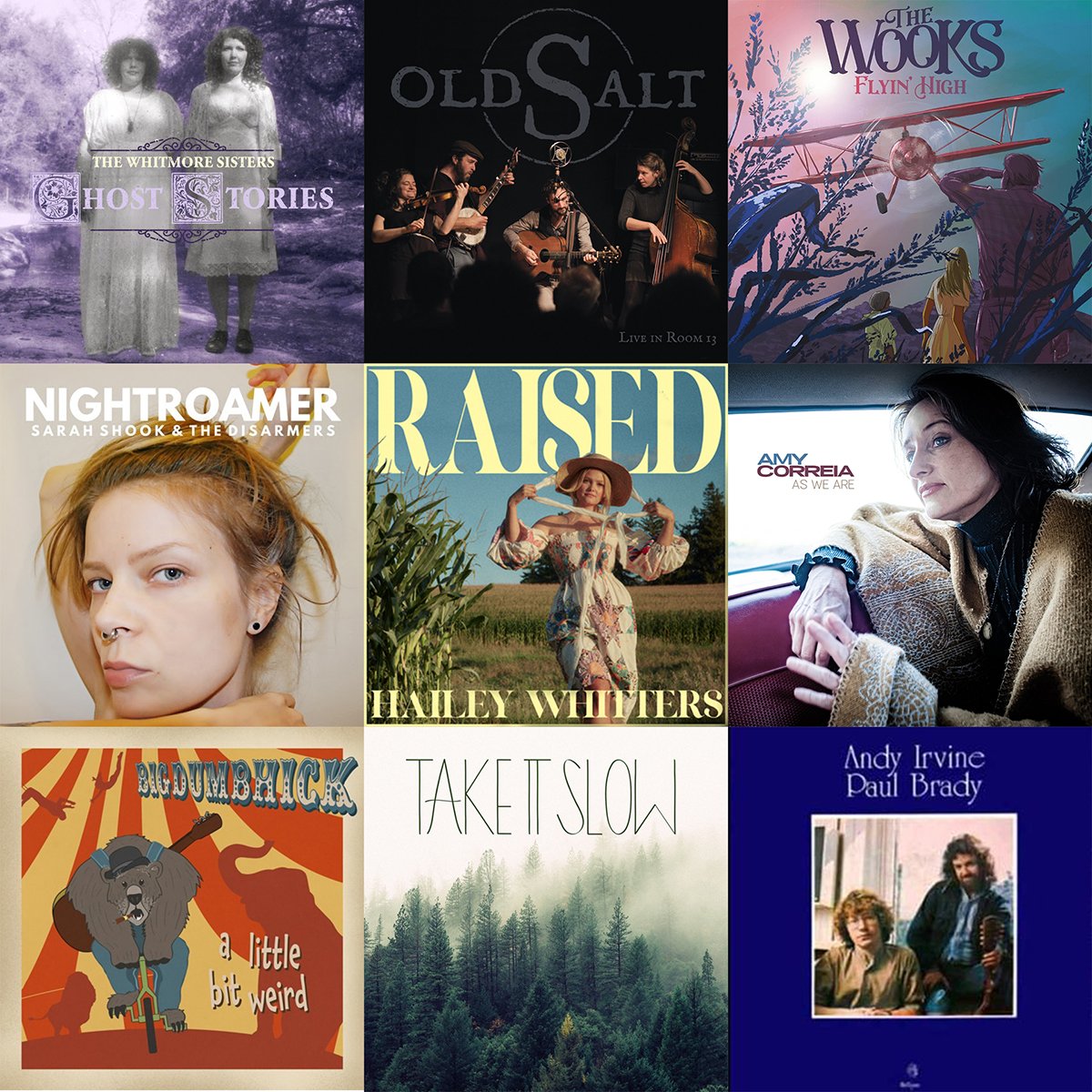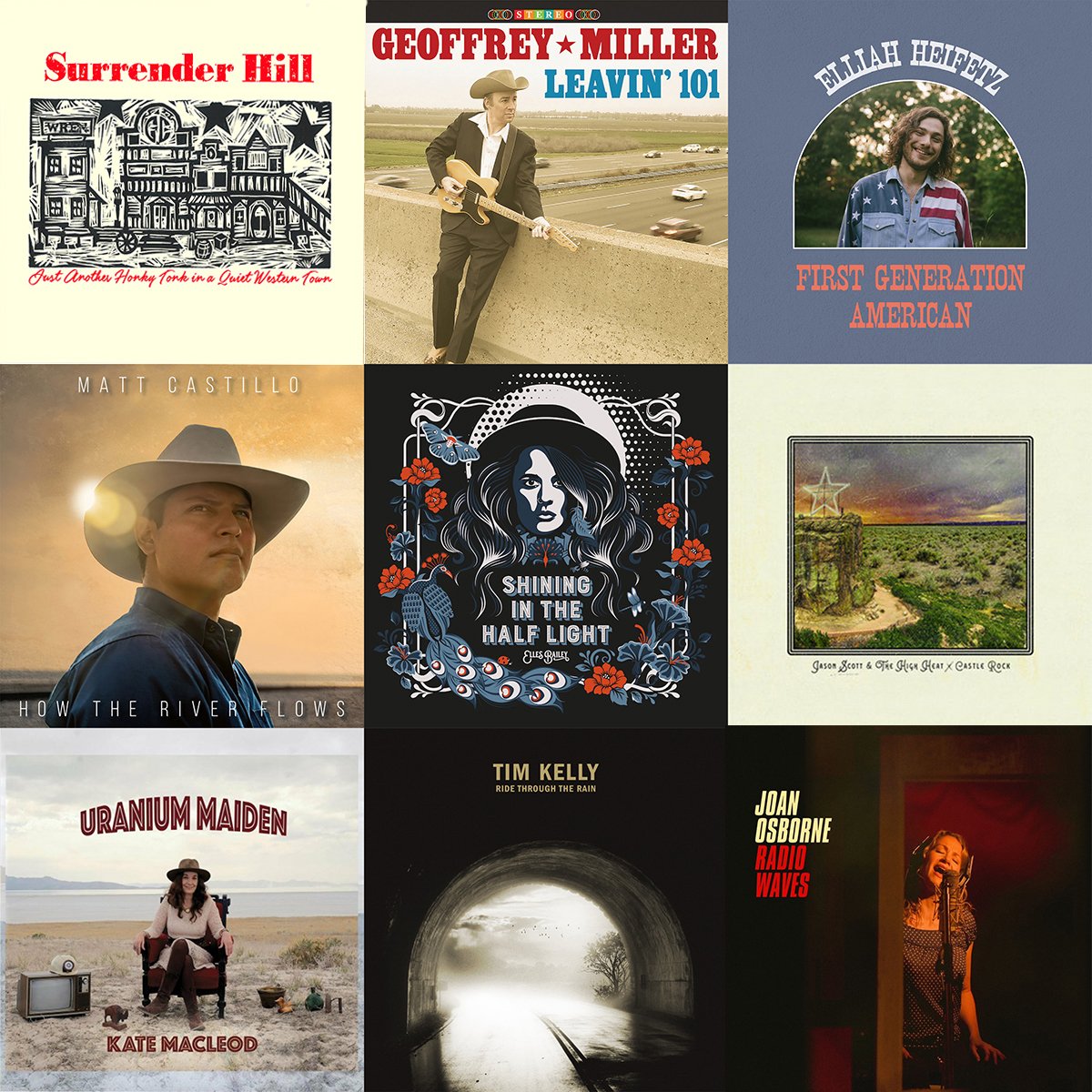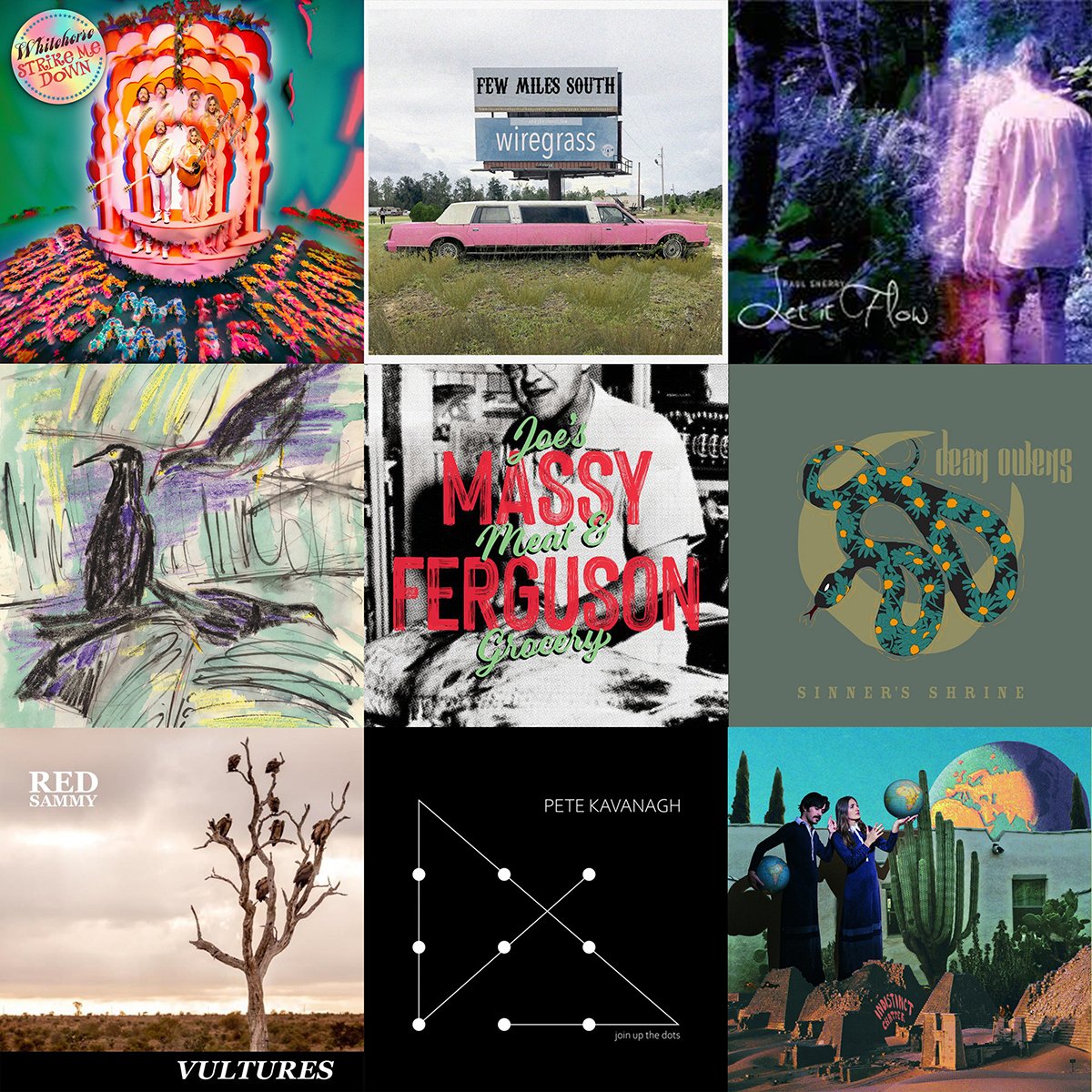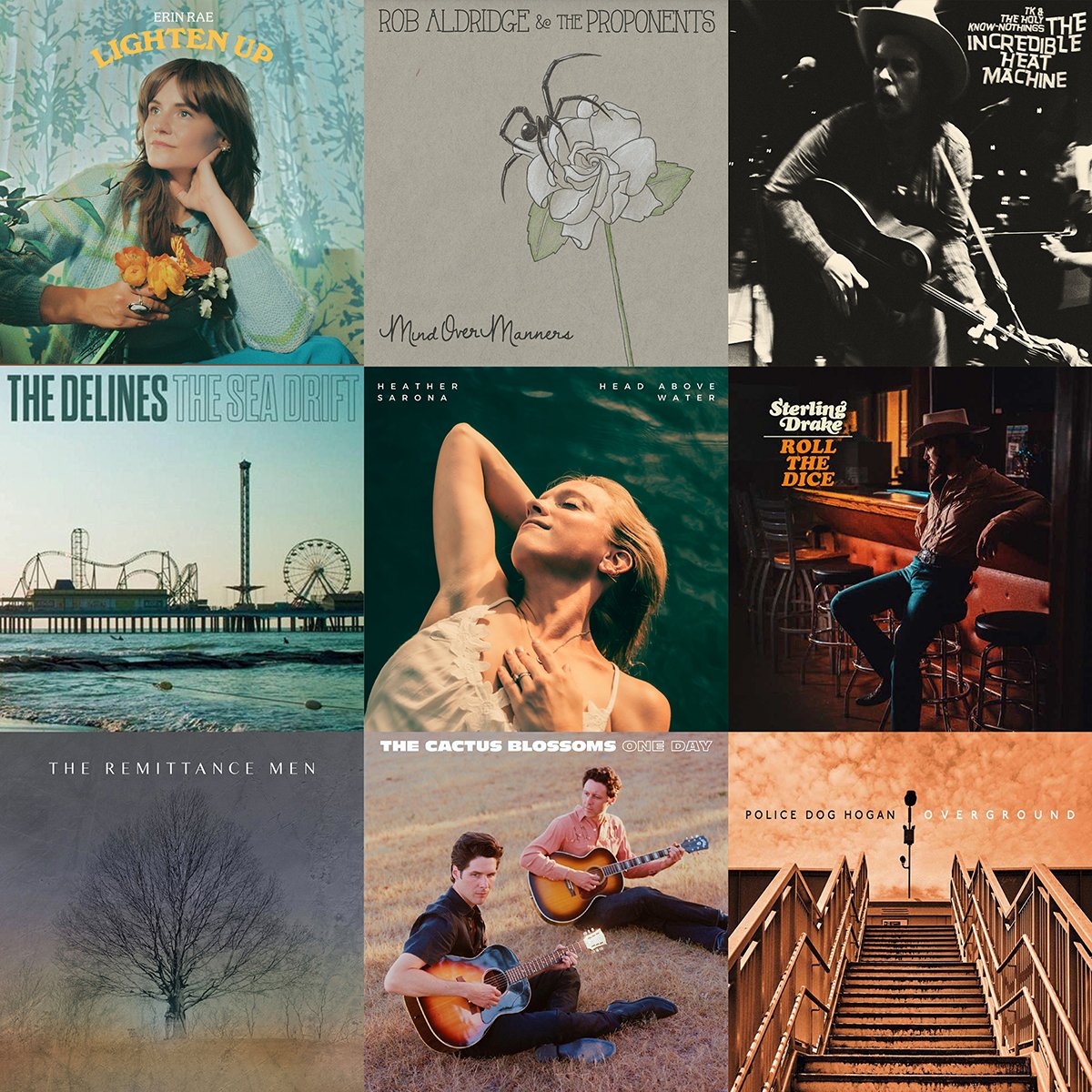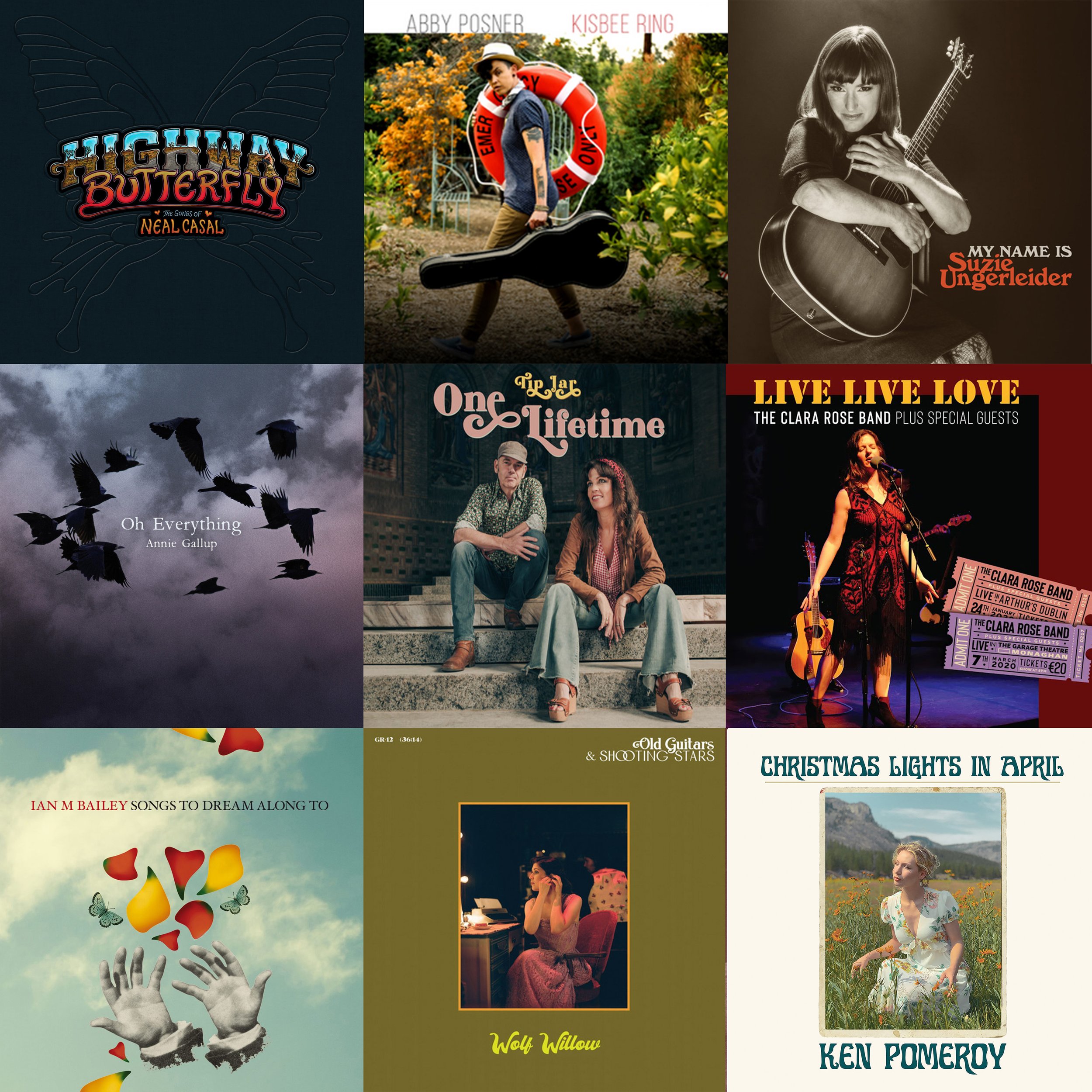Hannah White About Time Self Release
The opening track You Don’t Want Me Anymore, from Londoner Hannah White’s latest recording sets the scene starkly for what follows across the album’s ten tracks. A brutal commentary on past quandaries, it’s a powerfully emotive storybook delivered stylishly by the newly liberated spirit and follows on from her 2020 album HANNAH WHITE AND THE NORDIC CONNECTION, which was nominated for album of the year at the UK Americana Awards Festival.
White’s history includes surviving domestic abuse, homelessness, and brushes with the law. These episodes are recalled and no more so than on the unfeigned Car Crash, which communicates in some detail the anxiety and dread dealing with the prospect of having her child taken from her. It’s not all cruel reflection and tracks such as the gentle country ballad Broken Bird, with its echoes of Margo Price, and I Will Be Alright suggest rebirth and hopefulness. Similarly, the catchy and melodic The Good Stuff is more glass half full than half empty.
Self-produced by White, she is joined by Kieron Marshall who adds delightful splashes of guitar throughout. Other contributors include her Nordic Connection friends Lars Hammers-land on piano and Hammond organ, Svein Henning Bersta on bass, and Luca Wade on drums. However, the real winner is White’s vocals which succeed in drawing the listener into a hugely admirable treasure chest of soulful country tunes.
Life’s complexities and the unforeseen may have been the catalyst that presented White with the ammunition for ABOUT TIME. Still, those events have successfully resulted in a suite of songs that is a worthy companion to her last studio album.
Review by Declan Culliton
Chris Guenther American Outlaw Vol.1 Bakersfieldnorth
Washingtonian multi-instrumentalist and committed honky tonk artist Chris Guenther has been releasing albums for over twenty years and AMERICAN OUTLAW Vol.1 is his seventh studio recording. A stalwart of the Washington country music scene, Guenther divides his time between playing dancehalls with his backing band The Honky Tonk Drifters and weekly solo acoustic residencies.
You need to dig deep to source background information on Guenther, which is surprising given the quality of his recordings. He is heart and soul classic country and a trawl through his back catalogue reveals some quality records that somehow passed me by. THE CROSSING from 2010 and THE 5th, released three years later, are both packed with tear-stained country ballads, all presented with vocals that recall the stylings of George Jones and Buck Owens.
Guenther’s latest offering plays out like a soundtrack to a classic spaghetti western movie of the 60s. Featuring ten self-penned tracks, two of which are instrumentals, it’s very much a country and western project with emphasis on the ‘western’. The ‘Outlaw’ reference in the title relates more to the characters in the songs rather than Guenther paying tribute to Waylon and Willie. We hear of three amigos on the rampage on Sam Bass (Sam, Joe, and, I), robbing and looting and drawn to the desperado lifestyle, more inspired by the buzz of the challenge than the monetary gains. The predatory bank and train robbers The Dalton Brothers, of the late 19th century are recalled in The Dalton Raid, while the track Hangman’s Pole, not surprisingly, is a reminder of the inevitable consequences of the outlaw way of life. Trail Rage, complete with whistling intro, tells the tale of the folk icon and gunfighter John Wesley Harding and the final days of lawman ‘Wild Bill’ Hickok is recalled in Dime Novel Hero.
This is a hugely impressive album that will be lapped up by lovers of the classic country and western sound of yesteryear. More than that, the results are spectacular in places, no more so than on the Morricone-styled instrumentals Five Joaquins and The Shootist. Typifying an artist steeped in the sound of the celebrated country singers of the 60s, AMERICAN OUTLAW Vol.1 opens a door to a musical feast from start to finish. Here’s hoping there are more volumes to follow.
Review by Declan Culliton
Laney Jones Stories Up High AHPO
‘When I write, it’s like I step inside of a dream,’ explains Maryland-born Laney Jones, commenting on STORIES UP HIGH, the latest and sixth album from the deft and individualistic singer songwriter.
Far from conventional, Laney Jones’ calling to a musical career was rather alternative. Raised on a ten-acre farm in Florida, where her parents bred kangaroos, wallabies and various exotic animals, her initial chosen career path was in business. However, on reflection, Jones decided to abandon her business studies, instead pursuing a formal education in songwriting. What had previously been a means of expression and escapism for her as a teenager became her chosen vocation. She was subsequently awarded a scholarship to the Berklee College of Music.
A gifted lyricist and the possessor of a quite distinctive voice, Jones’ output has drawn comparisons, quite justifiably, with both Angel Olson and Adrianne Lenker of Brooklyn -based band Big Thief. Two of the songs that appear on her latest album, One Fine Morning and Not Alone, were the subject matter of an EP she released earlier this year, offering a snapshot of what to expect from STORIES UP HIGH. Showcasing the diversity of her musical prowess, the two songs could hardly be more dissimilar, the former a melancholy acoustic lead dreamy ballad, the latter a fierce and dark grungy anthem. Landing somewhere in between both is the intense title track. It’s a powerful narrative of longing and apprehension, topics that reoccur elsewhere on the album. She pours her heart out on the acoustic Daniel, considering the fragility of existence. On a similar theme, she reminds herself of the importance of living in the present in Remember.
Currently residing in Nashville, Jones recorded the album at The Bomb Shelter under the watchful eye of Andrija Tokic, whose name regularly appears on quality albums arriving at Lonesome Highway recently for review. He places Jones’ vocal perfectly in the mix, while succeeding in drawing the listener into material that navigates the emotional compass from melancholy to optimism. With Jones playing a range of instruments including banjo, keyboards, ukulele and guitars, STORIES UP HIGH is a further instalment in the journey of a maturing artist and one that offers a gateway into the inner thoughts of a highly creative intellect.
Review by Declan Culliton
Various Artists Americana Railroad Renew/BMG
There is a deep-rooted relationship between railway travel and American roots music and this splendid compilation album is a reminder of some of the classic travel songs that celebrate both the inherent romanticism and history of that particular mode of transport.
The project was the brainchild of Carla Olson and Saul Davis who co-produced the album. The stimulus for the album, which was originally broached by Davis over ten years ago, was Gene Clark’s fascination with trains and railways and in particular his songs Train Leaves Here This Morning and I Remember The Railroad, both of which are included on the album. Olson and Davis initially approached Stephen McCarthy (Dream Syndicate, The Jayhawks, Long Ryders) to gauge his interest and given his positivity, they began to create a menu of suitable songs and a wish list of artists to perform them.
The end product is a nineteen-track album featuring a ‘who’s who’ of notable artists and many memorable versions of classic train songs. Also included is an original song Southwest Chief, specifically written for the album and performed by Dave Alvin.
Two duets from Stephen McCarthy and Carla Olson are included. The rootsy opener Here Comes That Train Again was borrowed from The Long Ryders songbook and Gene Clark’s aforementioned I Remember The Railroad bookends the album. The latter does bring to mind the ageless album SO REBELLIOUS A LOVER that Olson recorded with Gene Clark back in 1987. Representative of a variety of roots genres, both Steel Pony Blues by Dom Flemons and the Jimmie Rogers written Waiting For A Train, performed by Paul Birch and Fats Kaplin, are acoustic blues delights. Graham Nash’s Marrakesh Express from Dustbowl Revival and Curtis Mayfield’s People Get Ready from Deborah Poppink are uplifting, joyous and soulful. John Fogerty, accompanied by Mickey Raphael on harmonica, reconstructs the Steve Goodman penned City Of New Orleans and the melodic Southwest Chief is delivered stylishly by Dave Alvin. Gene Clark’s son Kai Clark, with Byron Berline on fiddle, fittingly performs his father’s classic Train Leaves Here This Morning. The remaining tracks are credited to Robert Rex Waller Jnr from I See Hawks In L.A., Rocky Burnette, Peter Case, Gary Myrick, Alice Howe, ex-Byrd John York, A.J. Haynes and James Intveld.
Released as a limited vinyl edition for Record Store Day in November 2021, the album is now available in CD and digital format. Not only a cracking listen from start to finish, the judiciously selected songs for AMERICANA RAILROAD cover substantial historical ground, both of the railroad and American roots music. Without a doubt, this is an ‘every serious music lover should have’ album.
Review by Declan Culliton
Fellow Pynins Lady Mondegreen Self Release
Ian George and Dani Aubert, make up this talented duo, FELLOW PYNINS, highlighting all that is good in Folk music and delivering an album of quiet charm. This is a follow up to their debut release, Hunter and the Hunted, which dats back to 2016. Apparently, the term “mondegreen,” was coined in 1954 by the writer Sylvia Wright, and means a creative mishearing of a line in a song or a poem.
Recorded at their home, which sits off the grid on Buckhorn Land, Cascade Siskiyou National Monument, Oregon, on this occasion they have delved back into the traditional history of Folk music and looked for inspiration among the songs that inspired their love of the genre in the first place. With vocal harmonies that are a real delight, both Aubert and George deliver some superb renditions of old songs learned from English, Irish and Scottish traditions.
The playing throughout is quietly contemplative, both seamless and organic, with some glorious moments to lift the spirit, such as the interplay on Pretty Polly, a song with various renditions and titles down the years, and one that sits firmly in the murder ballad canon. Silver Dagger is the opening song and again, a ballad with a number of variations over the years. Equally, Streets Of Derry, another song with many versions, has lovely vocals that glide above the superb musicianship.
Aubert plays claw-hammer banjo, and bouzouki, while George contributes on guitars, piano and mandolin. There are some beautiful violin parts on the tracks, played by Eugene Feygelson and Maura Shawn Scanlin. Eladio Rojas (drums/percussion) and Ted Olsen (bass) add sublime parts also, with Strohviol violin played by Danny Diamond - an ancient instrument that is also known as a violumpet.
She’s Like the Swallow, a song from Newfoundland, is performed with the creative playing of Tree Palmedo (trumpet), John Cushing (trombone) and bassist Ted Olson. Another traditional favourite is Son, David, an old English hymn, given a contemplative, flowing jazz feel, the players highlighting their skills across the beautiful arrangement and sublime interplay. It’s a real highlight among the other gems collected here.
Irish traditional air, The Galway Shawl, is given due reverence with an introductory part performed by Kitty O’ Mahony from Balleydehob, County Cork. It is a field recording and highlights the authenticity of the entire project, Aubert and George having learned the song from her in a visit to her rural home. When they join the song, it is with a seamless beauty, highlighting the wistful nature of the lyric.
A Scottish ballad, The Road and the Miles To Dundee, and another air, Bonny At Morn, from 1882, are both given a beautiful treatment, gently reflective and superbly delivered. It is entirely appropriate that Fellow Pynins visit these musical influences and keep the Folk tradition alive with these sublime interpretations.
The album art is the famous painting by Hieronymus Bosch, The Garden of Earthly Delights, and an entirely appropriate choice given the rich pickings that await all who enter this joyous project. Timeless music for the spirit and the soul. Highly recommended.
Review by Paul McGee
Josie Bello Resilience Self Release
This third album arrives with Bello questioning the place we occupy on this spinning globe. Perhaps the constraints of lockdown have played their part, but the musings across these nine songs are very much made from introspective searching and righteous anger at the things she has found.
Rising opens the project with a message about overcoming adversity and standing up for what you believe to be true. The next song, Resilience, speaks about racial inequality and the bigotry contained within what we term ‘respectable society.’ This message is carried into the song, The Sound Of Guitars, which looks to music as a means to unite our fractured division and to banish hate.
I Am Empty is a slow song that references religion as a once abiding strength in coping with life. Feelings of hope in these challenging times have fallen away and Bello questions where to search for a better solution. Killing Time is a look back at younger years and juxtaposed with current responsibilities into adulthood. Time makes a mockery of innocent dreams and we settle for a reality that is not always of our making. Another observational song is Coffee Shop Open Mic and a look at the wannabees and frustrated creatives who still aspire to making it into the big leagues. It lightens the mood with a nice mid-tempo arrangement.
Bello writes all the songs, sings lead vocals and plays both accordion and keyboards. She is joined by Mike Nugent on guitars, bass, dobro and vocals; Shawn Murphy on drums and percussion; and Jim Small on harmonica. Mike Nugent produced and there are cameo appearances from Richie Guerrero and Shawn Dolan on percussion also. Calling Card is a fun look at dating and trying to chase down ‘the one.’ Love That’s Real has a nice Country swing to it and it celebrates the search to find the right heart. Too Many Changes closes things out with a reflection that trying your best does not always bring the desired result. Still, it’s important to keep believing and to keep trying. Certainly, a message that we have all held close during the past two years of living with the Covid virus. This is an album with some excellent musicianship and something for everyone to enjoy contained within the tracks.
Review by Paul McGee
Kris Gruen Welcome Farewell Mother West
This is the fifth album from a singer-songwriter who draws his inspiration from the beautiful countryside of Vermont, New England. This release appeared towards the end of 2021 and slipped past this reviewer at the time; no doubt caught up in the plethora of new releases that were given wings during the Covid lockdown period. Well, better late than never, as the nine songs included here weave a magic spell that lingers for quite a while after the thirty-three minutes of sweet music has elapsed.
Listening in headphones creates quite an intimate experience as the gentle melodies and understated playing find both resonance and refuge. Gruen has a fine vocal tone and the assembled musicians do these self-penned songs justice in their restrained approach to colouring the melodies and arrangements. Producer, Charles Newman, applies a light touch and also contributes on piano, keyboards and percussion. Other players include the superb pedal steel and lap steel of Jack McLoughlin; the beautifully balanced rhythm section of Randy Schrager (drums, percussion) and Rob Morse (upright bass); the electric guitar subtleties of Paul Casanova, and the French horn and trumpet of Probyn Gregory.
There are additional cameos on individual tracks, with Charlie Rauh (acoustic guitars), Michael Flynn (piano, backing vocals), JJ Beck (piano and banjo), Gerald Menke (pedal steel) and Colin McCaffrey (mandolin), all taking turns to enhance the final results on this quiet gem.
Water Into Wine is a song about recovery and belief in yourself. Banishing self-doubt and coming into the light. The band groove is superb with pedal steel and guitars chiming in unison. When She Says is a sweet song about working in the fields and sowing seeds for the summer season; ‘Climb your rig, you ride so cool, like a singer in a club on a bar stool.’ The easy melody on Skyline Drive recalls younger days with his grandmother and Gruen sings, ‘I called your old number just to hear you one last time, Then I hung up on that old machine like an addiction hot line.’
A standout track is When I’m Down, a slow-burn number about addiction and just getting to the next day’ ‘You’re an angel sorry girl, how your sadness pours, From your heart to the broken world.’ Again, pedal steel sets the tone and the playing is just sublime. The horns on Pictures Of, set an atmosphere of looking into the past, delving back to see what was left behind, ‘Take a picture of your childhood, And the ones you love from the neighbourhood, Then rise above, ‘cause you know you should, I think we done the best we could.’
Apple Tree is another memory of Gruen’s grandmother and the slow melody captures the mood, ‘Lay me in the ground just like a seed, I’ll shelter over family, In the leaves of your apple tree.’ The album ends with a stripped-down version of the Johnny Thunders song, You Can’t Put Your Arms Around A Memory. The ensemble playing is beautiful, even if the lyric sings of frustrations and breakdown in communication – something that the message on the rest of the album is not focused on. A very enjoyable listen and one that should raise quite a few new admirers for this talented artist.
Review by Paul McGee
Lia Ices Family Album Natural
On this fourth release, Ices has embraced the joys of motherhood, coupled with a move away from Connecticut to California. Her writing is framed around the quiet calm of her new surroundings, at Moon Mountain in Sonoma, and the nine tracks have a sweet reverie that runs through them. Call it Folk, or modern ambient musing; either way, these reflections offer an easy choice to spend time away from the hectic flow of modern living.
Young On the Mountain sings of this exact mindful state and feeling the quiet power of nature all around. Similarly, both Hymn and Earthy contain elements of 60s hippie-dream contemplations and the wash of electronic sounds are augmented by the flute of Colin Kupka and the viola of Ari Balouzian. John Anderson, provides guitar sounds and the presence of the Isuara String Quartet is a welcome addition on the track, I’m Gone. Bass duties are shared by Max Whipple, John Anderson and Eva Gardner across six tracks and the subtle drums of Derek James always support the song arrangements.
Beauty Blue is one of the few up-tempo numbers that breaks ranks, with the overall lush treatment still part of the other song moods – is that uncredited pedal steel the I hear also? At the front of everything is the expressive piano playing of Ices, always setting the tone and in harmony with her wistful vocal delivery. Our Time closes the album and it’s sweep of strings, with electric guitar layering, is a standout. A very interesting project, brought to life out of new beginnings and certainly music that will grow on the listener.
Review by Paul McGee
Ali Sperry In Front Of Us Self Release
Ali Sperry has released a number of albums since her 2012 debut and she gathers quite a coterie of friends and players from Nashville on this new release. Included in the main group of players are, Jen Gunderman and Kai Welch (assorted and varied keyboards); Owen Biddle (bass, moog); Kristen Weber (strings, backing vocals); Audley Freed, Sadler Vaden and Joe Pisapia (acoustic and electric guitars); Rich Hinman (pedal steel), Sarah Dugas and Allison Russell (backing vocals on three tracks).
The opening song, Climber, has a big production but to my ears the string arrangement is somewhat superfluous and unnecessary in the mix. As a song about notching up love conquests however, it hits the mark. The commercial sound of, Lucy, is similar, with a poppy arrangement, whereas I Know You’re Scared is a slow song about looking out for a child who is facing the challenges of the outside world, ‘And in the end we all fall back into the space from where we came.’
Excuses has a bright sound and asks why we cannot just take responsibility for our own actions and failings. It’s all very radio-friendly, up-tempo and breezes along at a pace. Hope introduces a slower reflective sound, with Rich Hinman on sweet pedal steel and producer Jamie Dick on soft drums and percussion, a song that reflects the sentiment of the album; look forward to the future and don’t get upset about past regrets.
Cool Under Pressure is danceable and catchy, a statement for the women of today taking control and not putting up with misogyny any longer. Safe is another thoughtful song and asks about how to protect a vulnerable child against outside predators and pressures that are ever-present. The strings work well here, with some
Peace By Moonlight is a mid-tempo song with some sweet backing vocals from Birds Of Chicago duo, JT Nero and Allison Russell. The aspirational sentiment in the lyric for a better tomorrow is captured well; ‘where the doves are not afraid of the hawks.’ In Your Dreams has a message about not being sorry and saying yes to what life offers… The final song, and the album title, In Front Of Us, is a memory of young love that has grown into something more over time. Trusting in the days ahead.
Many other guests appear on individual tracks, either as players or backing vocalists. The list includes Adam Meisterhans, Sam Howard, JT Nero, Andrew Combs, Carey Ott, Ruth Moody and Kyshona Armstrong. In addition to production duties, Jamie Dick plays drums and percussion on all the tracks and his ability to balance the rich instrumentation and the collaborative efforts of all involved, across a number of different studios, and a period of some months during lockdown, has to be admired. This is an album that is both engaging and enjoyable.
Review by Paul McGee

